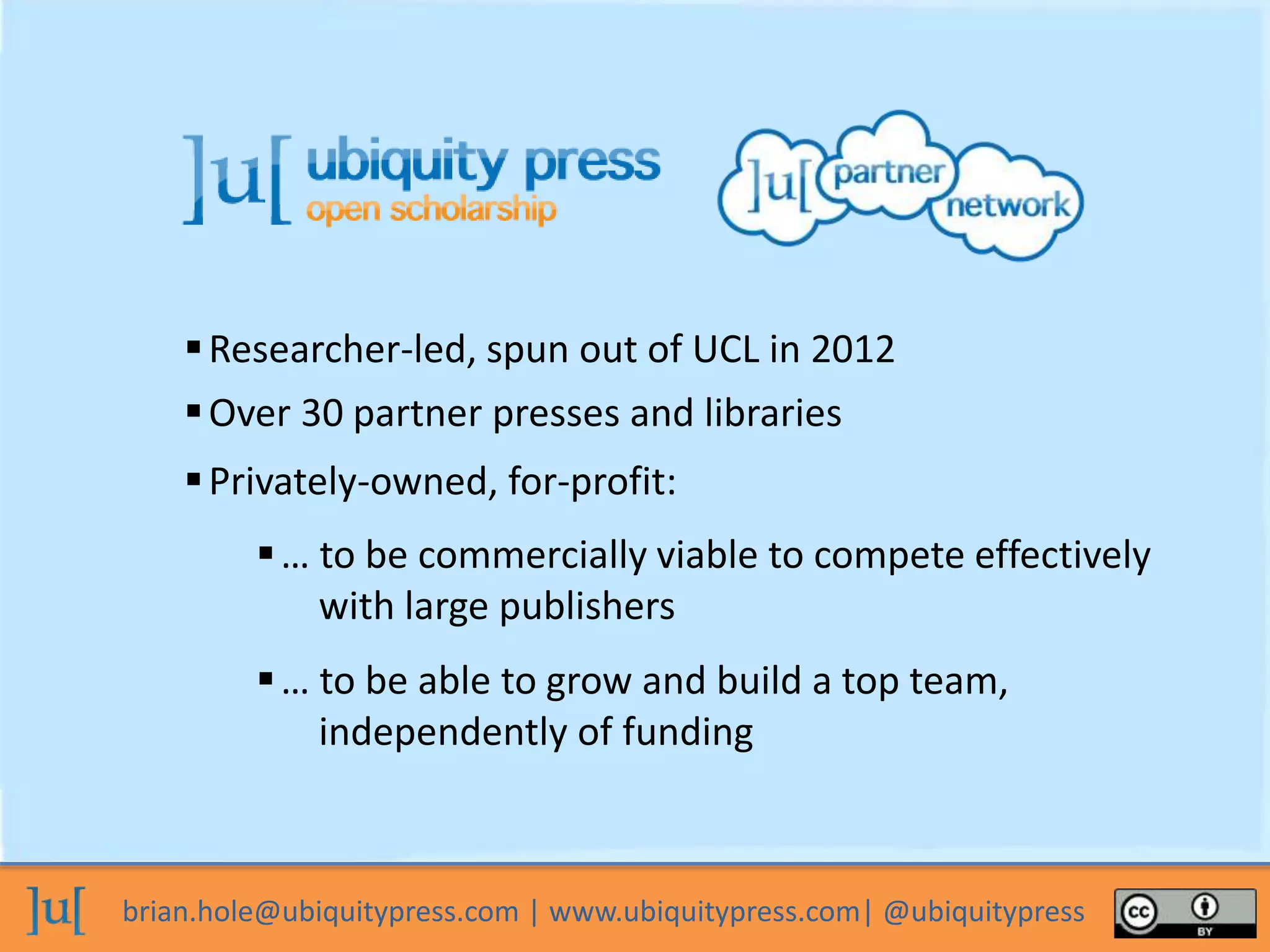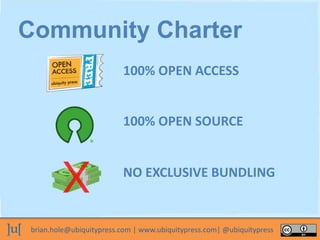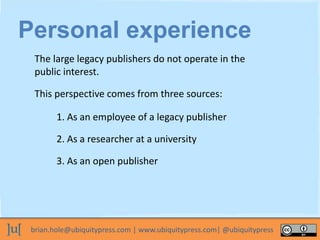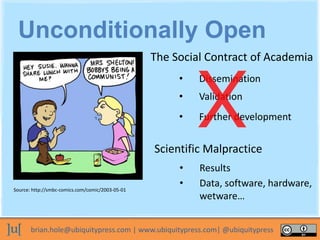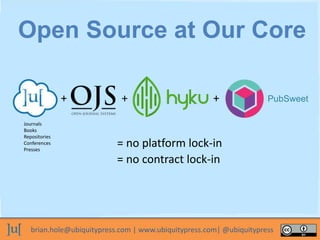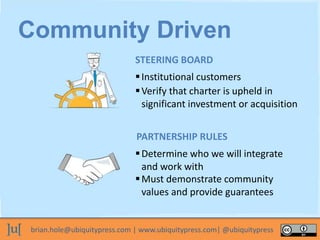Ubiquity Press was spun out of UCL in 2012 as a researcher-led, privately owned, for-profit open access publisher. It uses an open source platform and operates under an open access, open source model without exclusive bundling or contract lock-ins. It has over 30 partner presses and libraries and is community driven with institutional customers and a steering board.
